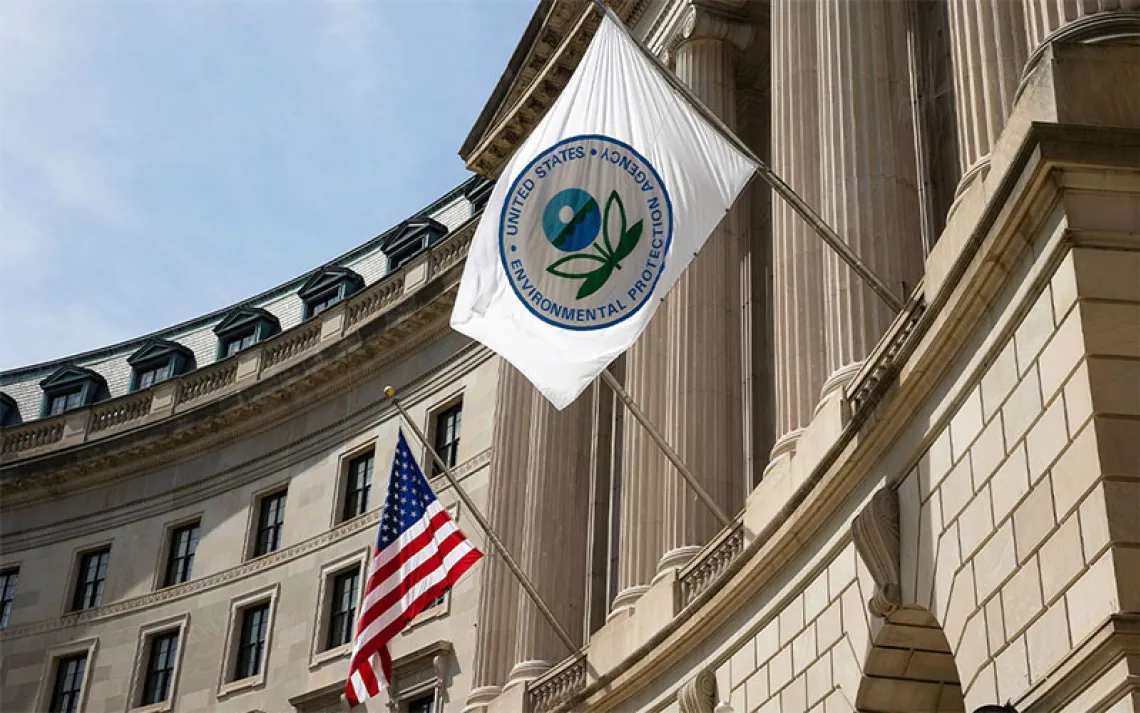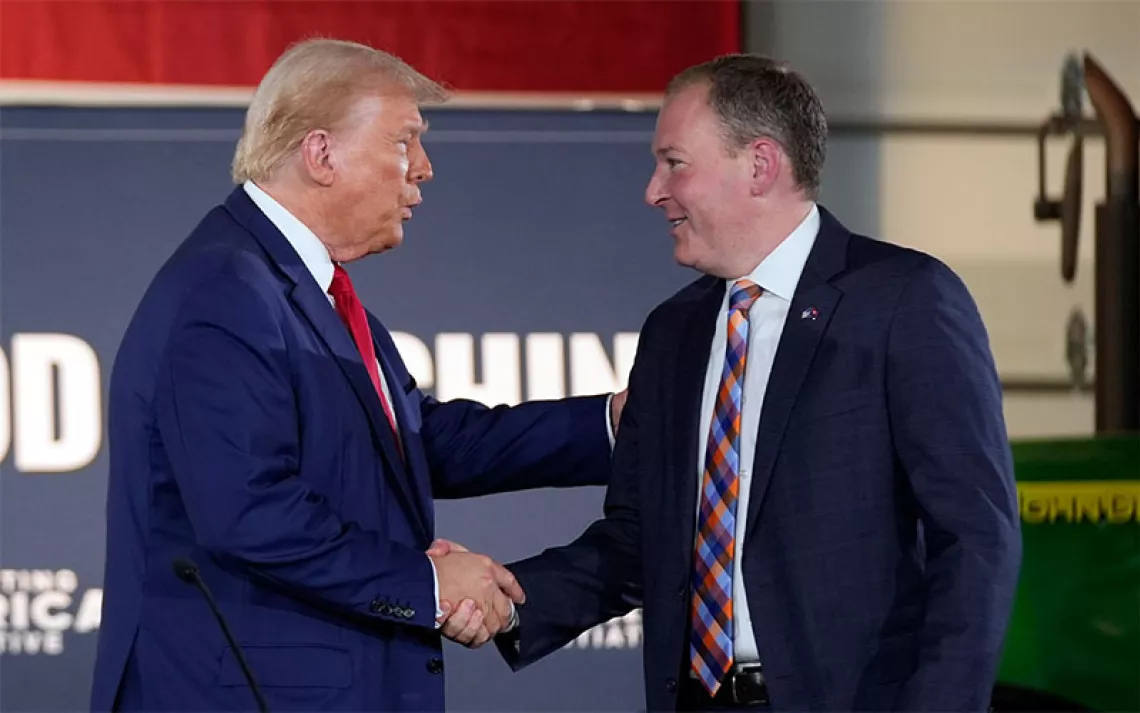How Long Can We Go Without Prosecuting Polluters?
The EPA is letting criminal pollution slide

Kayakers after a mine waste spill near Durango, Colorado. | Photo by Jerry McBride/Durango Herald/AP
After Volkswagen was caught cheating air-quality standards, the multibillion-dollar settlement between the German automaker and the Department of Justice is being split among the states. The funds from the so-called Volkswagen Mitigation Trust are to go toward projects to fund nitrogen oxide removal, electric car infrastructure, and the decarbonization of dirty transportation systems.
But under the Trump administration, penalties like this (and the investigations that lead up to them) are falling by the wayside. According to numbers released on Tuesday by Public Employees for Environmental Responsibility (PEER), a nonprofit that tracks environmental accountability in the public sector, the EPA has drastically reduced the number of referrals for criminal prosecution. Such referrals are a crucial starting point for the prosecution of environmental cases at the Department of Justice, and the number has dropped from 228 in the last year of the Obama administration to just 166 last year.
This change transcends political affiliation, though the drop maps with high levels of deregulation. In 1992, during the first Bush administration, the number of referrals was even higher, at 267. The last time the number of referrals was that low was in 1988, near the end of the Reagan administration.
This year, the number of referrals could beat that record. In the first two months of the 2019 fiscal year, the EPA referred only 24 cases for prosecution.
The decrease in referrals can partly be attributed to former EPA administrator Scott Pruitt, who cut the EPA’s Criminal Investigation Division (CID) staff even while tripling his personal security detail. According to EPA mandates, the CID is required by law to staff a minimum of 200 investigators. But that number has been in steady decline since the Clinton administration. Following the Obama administration, the number stood at 156 investigators in 2016, due in large part to budget cuts at CID. As of April last year, the number of investigators had dropped to 140 and is as low as 130 today.
Jeff Ruch, executive director of PEER, says Andrew Wheeler, the former coal lobbyist who is Pruitt’s replacement, has not improved morale. CID agents have told Ruch that attrition is getting even higher and productivity is down. “This is not,” says Ruch, “the golden age of enforcement at the EPA.”
In part this is because even when the EPA does refer a case to the Justice Department, the DOJ isn’t required to prosecute.
According to Eric Schaeffer, a former director of EPA civil litigations under the Clinton administration, EPA staff and resources have been steadily shrinking for years, as Congress has repeatedly slashed the EPA budget. Schaeffer has been a vocal critic of former EPA administrator Scott Pruitt’s handling of the agency. He says that a huge number of violations never go reported, let alone prosecuted.
“It’s not surprising that the numbers are dropping,” says Schaeffer, in reference to the referrals. “Everything at the EPA is dropping.”
Now that the Trump administration and House Democrats are locked in a stalemate over Trump’s demand for 5 billion to build a wall, much of it across privately owned land and critical wildlife habitat, the government shutdown—currently the longest in US history—could make the problem worse. EPA staff have been cut back in many regional offices, and civil inspections have all but halted. While criminal investigators are considered essential (and are therefore still working), it’s unclear how much support or resources they’re actually getting, Shaeffer says, or how long they can keep working long hours without pay without a drop in both morale and productivity.
“You either have a police force for the environment or you don’t,” says Schaffer. “Enforcement never runs out of business.”
The shutdown will set environmental enforcement cases back months, if not years, says Kyla Bennett, science policy advisor and director of the New England PEER office. “It’s a nightmare right now. It’s a free-for-all for polluters,” adds Bennett. “We can’t afford to let big companies who aren’t going to spend the time and money to clean things up try to cut corners, if they don’t think they’re going to get prosecuted. Americans are going to get dirty air, dirty water.”
Due to the government shutdown, the EPA press office for the Enforcement division is closed and could not be reached for comment.
 The Magazine of The Sierra Club
The Magazine of The Sierra Club



